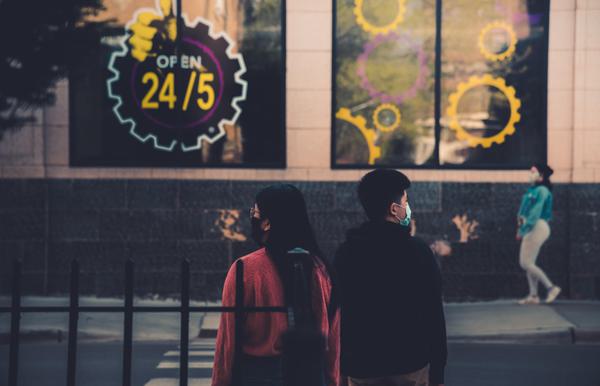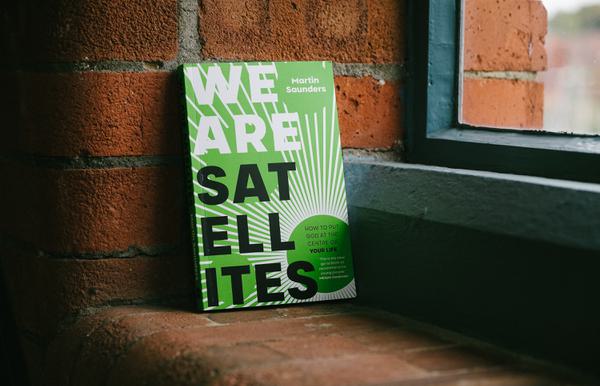Lockdown has pushed youth ministry to adapt to ever-shifting measures. As we mark National Youth Work Week, what might it mean for it not just to adjust but ‘level up’ into something stronger?
For months during lockdown, youth work was limited to digital and detached modes, aiming to keep connection with young people as much as possible. Here in the West Midlands, several local authorities have recognised youth work as an ‘essential service’ allowing face-to-face practice to resume in bubbles of 15 since the summer, and some church youth groups have similarly re-commenced, albeit with face coverings and adhering to social distancing guidelines. It’s not been easy, but through this time the value of youth work in all its forms has never been greater. It’s time to seize the levelling up rhetoric and build stronger youth work in all our communities.
Levelling up
At the end of July, Danny Kruger MP released a report entitled ‘Levelling up our communities: proposals for a new social covenant’, commissioned to draw out learning from responses to the pandemic in local areas (the full report can be read here). It begins with an example of a parish church in Devizes, Wiltshire (in the MP’s constituency) showing leadership in responding to local needs at the start of lockdown bringing together a volunteer army of 344 people to deliver food and prescriptions and visit the lonely.
The report includes a section called ‘A new deal with faith communities’ where the practical response to community needs from Christian churches during lockdown is both acknowledged and affirmed. The report goes further to recommend a greater partnership between publicly funded services and faith-based organisations. It acknowledges flaws in the approach of Cameron’s ‘Big Society’ where this initiative failed to cut through the austerity programme in any meaningful way and proposes a new social covenant to help people connect and be supported in their local neighbourhoods.
This might sound like empty words and we may sometimes feel sceptical of the government’s ‘build back better’ pledges, but if we take the words at face value, we have an opportunity to strengthen local partnerships and be emboldened in our community outreach.
A new curriculum
Since the pandemic started, I have had many conversations with youth workers about lockdown restrictions, their effect on youth work, how and when to resume groups. In these times the National Youth Agency’s Covid guidance with the colour-coded readiness level alert system offers real leadership and clarity through all the uncertainty and is immensely valuable.
The NYA have now launched a ‘National Youth Work Curriculum’ formed through consultation with UK Youth, Youth Focus regional groups and in consultation with young people and youth workers. This curriculum articulates the value of youth work, placing young people at the centre surrounded by the core values of Empowerment, Equality, Education and Participation. It offers 10 key themes which young people want addressed, and is summarised in the following diagram:

Christian Youth Work does not appear to have been represented in this process. However when you look into the exploration of the themes ‘Health and Wellbeing’, ‘Identity and Belonging’, and ‘Art, Culture and Heritage’, religion is listed as a significant factor. The explicit presence of faith and spirituality in national youth work frameworks comes and goes, but I still take this as an encouragement and recognition of Christian contributions to youth work, and a reminder that we need to part of this conversation.
What we do often overlaps with these themes, but we also have a distinct culture and purpose. When you look at these themes, what do you think Christian youth work has to contribute here? what would we add or challenge? And how can we articulate our ministry as an ‘essential service’ not just for the church, but for the local community?
Working in partnership
The ‘Reach Out Bromsgrove’ project in Worcestershire is a great example of a church working with publicly funded services like the local Community Safety Partnership to listen to the voices of young people who feel disengaged from the community. It’s been running for two years and has responded to the voice of young people by setting up with other partners boxing lessons, a music project and enabling the repainting of a local skate park. ‘Reach Out Bromsgrove’ has identified at street level some of the risks, dangers and vulnerabilities that young people face, but even more the presence of youth workers has given a sense to young people that other people value them. During lockdown the project has had over 600 encounters with young people on the streets (A video explaining more about this process can be viewed here). This project is now moving to a new phase, connecting with a new youth work charity ‘The Hub’ in the town whilst continuing to fund detached work to keep listening and responding to young people’s needs.
Youth work matters and makes a difference. It’s great when members of parliament and national bodies like the NYA recognise the contribution that faith communities make to youth work, but we also need to play our part too. One way to do this is to participate in ‘National Youth Work Week’ from the 2nd-8th November 2020. You can nominate good examples of youth work practice to feature on the NYA website and take part in the social media campaign ‘Ambitious for Youth Work’.
As NYA describes the campaign: “We encourage young people, youth workers and those that commission, fund or lead youth work to show us and the rest of the world how you support young people in the present and your ambitions for them in the future. Feel free to work with young people and interpret the theme how you see fit and to produce whatever you or young people would like to."
Let’s affirm the value of youth work together, consider our curriculum and our reach and work to encourage creative partnerships that meet the needs of young people in our local areas.
You can join National Youth Work Week (2nd-8th November) on social media with the hashtag #YWW20










